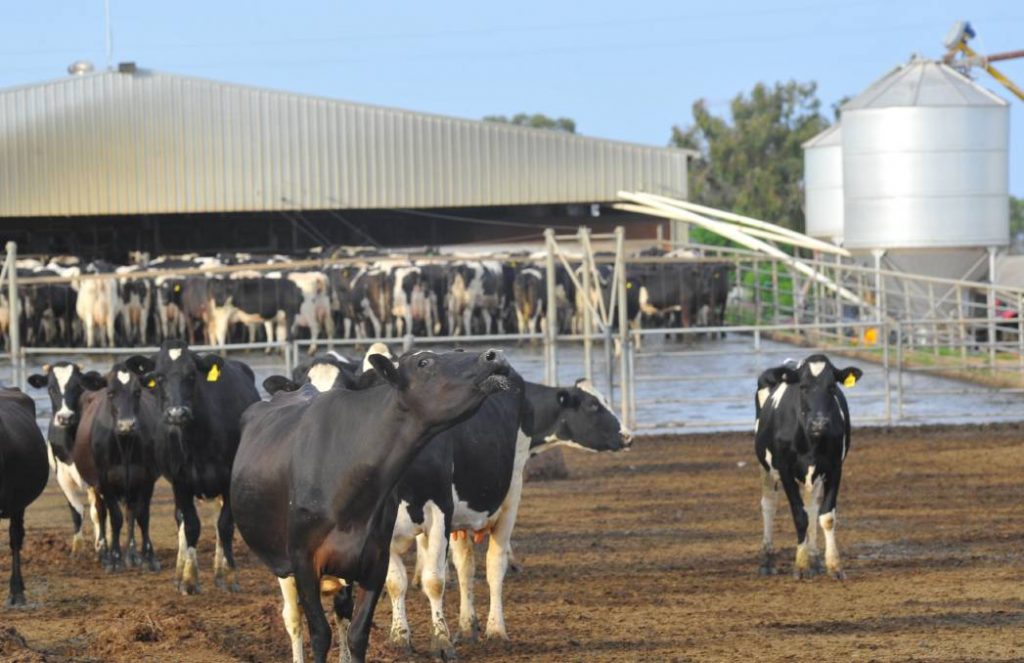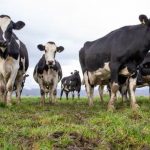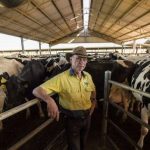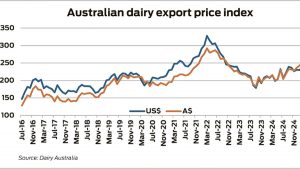
OPINION
It’s been 20 years since John Howard’s Coalition Government, deregulated Australia’s dairy industry.
Howard did not act precipitously. Rather, he took the next steps in a long period of necessary reform beginning with Labor Primary Industries Minister, John Kerin.
Many dairy farmers immediately left the industry, taking advantage of exit packages funded by a temporary 11 cents a litre levy placed on consumers.
The processing sector re-shaped itself as the big players moved in and slowly squeezed out the dairy co-operatives Australians had grown so fond of.
Deregulation was economically rational and there were winners – most of them big players with an eye to export markets
– Joel Fitzgibbon
The big supermarkets saw opportunity too, using fresh milk as a loss-leader in a strategy to build market share at the expense of the corner store.
It was a strategy that by 2011 gave birth to “dollar milk” so despised by dairy farmers.
Deregulation was economically rational and there were winners – most of them big players with an eye to export markets where they sought to grow profits by marketing higher-value dairy products like cheese, milk power and infant formula.
But by any measure, our dairy farmers have been the losers.
Long caught in a cost-price squeeze, dairy farmers are leaving in droves as the drought adds to their woes.
Their production costs continue to rise while the price of fresh milk and cheese remain stubbornly low.
Yet many dairy industry leaders are resisting change.
None has been more vocal than SA Dairy Farmers president, John Hunt, who argues supporting our farmers will hurt our export industry.
To Mr Hunt I say: if we need to pay our farmers below their cost of production to be competitive in international markets then maybe they are markets we should not be in.
Pauline Hanson’s plan
In federal parliament two weeks ago Labor teamed with Pauline Hanson’s One Nation and others in a second attempt to save our dairy farming families by supporting a Bill which largely mirrored a policy Labor took to the 2019 election; a proposal to introduce a minimum farm gate milk price.
The concept is a simple one.
An independent regulator would regularly assess the cost of producing milk within each dairy region.
It would then set a minimum farm gate price just above that cost.
A mandatory code of conduct would protect farmers from the power of the big processors while still allowing farmers to negotiate the best price for their milk – though no less than the price set by the regulator.
The processor would either absorb the additional cost in their bottom line, or pass it through to their mainly big retail customers who in turn, would take the hit on their own bottom line or pass it through to customers.
Intense competition in the retail sector would likely still deliver supermarket customers milk at a good price.
Senator Hanson’s Bill failed in the Senate 30 votes to 31.
Liberal and Nationals senators voted together to defeat the proposal.
Dairy code imbalance
So, too, did the SA- based Independent and Centre Alliance Senators, no doubt influenced by local industry leader John Hunt.
Sadly, last week we learned the government is working hard to water-down its own draft code.
– Joel Fitzgibbon
The vote took place the same day it was becoming clear that the Morrison-McCormack Government was not even capable of implementing a code of conduct to manage the power imbalance between our farmers and the processors who purchase their milk.
Finally dragged screaming to support a code, it’s been 20 months since the implementation process began.
Sadly, last week we learned the government is working hard to water-down its own draft code.
The more enlightened farm leaders advise that the amended draft code would be worse for farmers than not having a code at all.
Levelling the playing field
The dairy code is supposed to level the playing field for dairy farmers by – among other things – stopping claw-back provisions in contracts which retrospectively cut payments to farmers.
When asked four times on ABC radio this week to explain the dilution, Agriculture Minister, Bridget McKenzie, declined to do so four times.
It is not overreach to suggest that without change, we could lose our dairy industry and find ourselves importing our drinking milk.
Already we import around half of the dairy products we consume.
Yet Scott Morrison refuses to act and National MPs are either unwilling, or unable, to stand up for our farmers and to him.
Black Jack McEwen will be rolling in his grave!
Joel Fitzgibbon is the Shadow Minister for Agriculture and Resources and the Federal Member for Hunter.

























